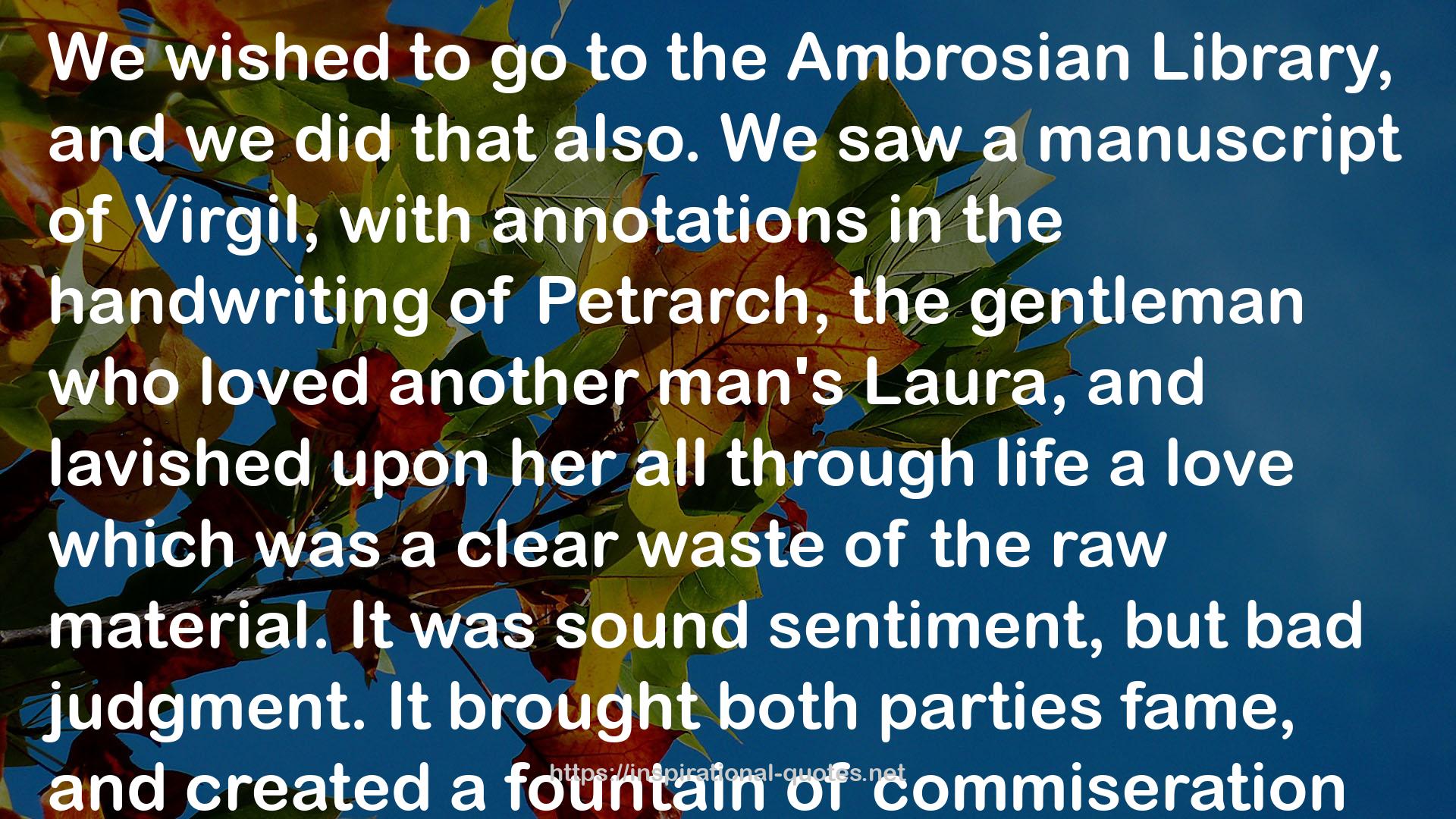" We wished to go to the Ambrosian Library, and we did that also. We saw a manuscript of Virgil, with annotations in the handwriting of Petrarch, the gentleman who loved another man's Laura, and lavished upon her all through life a love which was a clear waste of the raw material. It was sound sentiment, but bad judgment. It brought both parties fame, and created a fountain of commiseration for them in sentimental breasts that is running yet. But who says a word in behalf of poor Mr. Laura? (I do not know his other name.) Who glorifies him? Who bedews him with tears? Who writes poetry about him? Nobody. How do you suppose he liked the state of things that has given the world so much pleasure? How did he enjoy having another man following his wife every where and making her name a familiar word in every garlic-exterminating mouth in Italy with his sonnets to her pre-empted eyebrows? They got fame and sympathy--he got neither. This is a peculiarly felicitous instance of what is called poetical justice. It is all very fine; but it does not chime with my notions of right. It is too one-sided--too ungenerous. "
― Mark Twain , The Innocents Abroad
